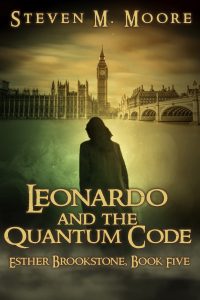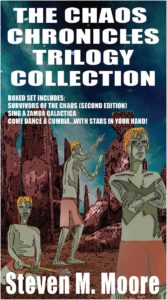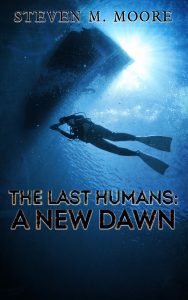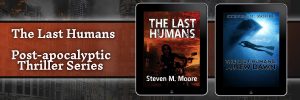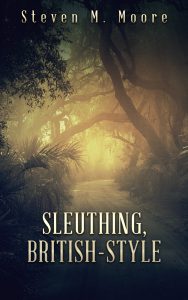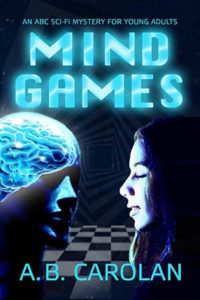Book reviews: the “Ravenscroft” series…
Wednesday, May 4th, 2022“Inspector Ravenscroft” Series. Kerry Tombs, author (10 novels from Joffe Books). Many of my readers know that my “Esther Brookstone Art Detective” novels (see below) have progressively become more in the British style as the series progresses. Maybe not so well known are my short fiction collections of tales written in the British style. (There are four: The first three are titled Sleuthing, British-Style and the fourth is simply titled The Detectives. See the “Books & Short Stories” web page.) I’ve binge-read entire series of British-style mystery novels as well and have become quite the fan.
Consider all that an homage to Agatha Christie whose seminal novels in the genre entertained me for many hours as a young reader, which led me to wonder why she never put her two famous sleuths, Miss Marple and Hercule Poirot, together in a novel. (I rectified that. Esther Brookstone is a twenty-first century and more agile version of Miss Marple while paramour and later husband, Bastiann van Coevorden, looks like David Suchet in his role of Poirot.)
One thing that makes this Ravenscroft series unique is that the novels are set in nineteenth century England, in contrast to my twenty-first century Brookstone novels; to be specific, this is the Victorian era. Let me warn you: If you’re expecting romantic nostalgia, you’ll be sorely disappointed. Instead, you’ll see the British Empire and the world for what it truly was back then—gritty, often deadly, and with crime occurring at all levels of society. Most of the series takes place in England, but one novel has Ravenscroft traveling to New York City, so the reader can see the international aspects of the squalor hiding below the surface of genteel societies of the time.
The main character, Detective Inspector Ravenscroft, comes from Whitechapel in London, an area of poverty and crime, leaving his post at Scotland Yard just before the series of murders committed by Jack the Ripper, to become a gifted and respected crime-solver in Worcestershire.
In his very first case, he partners with Constable Crabb, who accompanies and aids him throughout many cases. He also meets his future wife, Lucy; she even participates in a few cases later in the series.
I hesitantly approached this series initially—I’m not nostalgic for nineteenth-century life. But the series grew on me. I sailed through the novels, the epitome of entertaining and clever mystery “page-turners.” I felt a great sense of loss whin I finished the tenth and last novel, appropriately titled Ravenscroft’s Last Case. I hope that one day I might be able to thank the author for the many hours of reading entertainment provided.
And readers of this blog, please note the name of the publishing house that I also profusely thank: I’d wager that half the British-style mystery novels I’ve binge-read are from that publisher. They’ve been consistently good. (You will find a list of British-style mystery novels, many in a series, that I’ve updated with successive publications of Sleuthing, British-Style. If I offer another collection, I will surely add the Ravenscroft series to that list!)
***
Comments are always welcome. (Please follow the rules on my “Join the Conversation” web page. If you don’t, your comment will go to spam.)
 More binge-reading? You have the opportunity to do just that with the “Esther Brookstone Art Detective” series. Follow Esther’s many dangerous adventures in these eight novels (three are pictured), often driven by her desire to find justice for innocent victims and the exploited, obsessions often putting herself and her Dutchman, Bastiann van Coevorden, in peril. The two are twenty-first century versions of Christie’s Marple and Poirot, with Esther a bit more active and agile than the former and Bastiann just as cerebral but less pretentious than the latter. In Rembrandt’s Angel, Esther pursues a painting stolen by the Nazis in World War II; in Son of Thunder, she’s in a race to find the tomb of St. John the Divine; in Death on the Danube, she helps Bastiann run a murder investigation on their honeymoon cruise; in Palettes, Patriots, and Pillocks, she defends an American artist; in Leonardo and the Quantum Code, she struggles to protect an old friend whose code for quantum computers is pursued by three major powers; Defanging the Red Dragon is about China’s desire to steal software and hardware upgrades for nuclear subs; Intolerance begins a fight against right-wing terrorists whose mission is to purge migrants and refugees from Britain; and The Klimt Connection continues that battle against extremists after the couple’s flat is bombed. To binge-read this exciting series, you’ll have to do a bit of sleuthing of your own: The ebook versions are available wherever quality ebooks are solid (the link above takes you to them on B&N), but Dragon and Intolerance are only available in PDF format as free downloads on this website. The first three novels (pictured) have print versions brought to you by Penmore Press and Carrick Publishing. Numbers four, five, and eight are published by Draft2Digital and not available on Amazon. Enjoy!
More binge-reading? You have the opportunity to do just that with the “Esther Brookstone Art Detective” series. Follow Esther’s many dangerous adventures in these eight novels (three are pictured), often driven by her desire to find justice for innocent victims and the exploited, obsessions often putting herself and her Dutchman, Bastiann van Coevorden, in peril. The two are twenty-first century versions of Christie’s Marple and Poirot, with Esther a bit more active and agile than the former and Bastiann just as cerebral but less pretentious than the latter. In Rembrandt’s Angel, Esther pursues a painting stolen by the Nazis in World War II; in Son of Thunder, she’s in a race to find the tomb of St. John the Divine; in Death on the Danube, she helps Bastiann run a murder investigation on their honeymoon cruise; in Palettes, Patriots, and Pillocks, she defends an American artist; in Leonardo and the Quantum Code, she struggles to protect an old friend whose code for quantum computers is pursued by three major powers; Defanging the Red Dragon is about China’s desire to steal software and hardware upgrades for nuclear subs; Intolerance begins a fight against right-wing terrorists whose mission is to purge migrants and refugees from Britain; and The Klimt Connection continues that battle against extremists after the couple’s flat is bombed. To binge-read this exciting series, you’ll have to do a bit of sleuthing of your own: The ebook versions are available wherever quality ebooks are solid (the link above takes you to them on B&N), but Dragon and Intolerance are only available in PDF format as free downloads on this website. The first three novels (pictured) have print versions brought to you by Penmore Press and Carrick Publishing. Numbers four, five, and eight are published by Draft2Digital and not available on Amazon. Enjoy!
At PubProgressive.com tomorrow: “Hey, Russians, who’s gonna pay for Putin’s War?”
Around the world and to the stars! In libris libertas!
